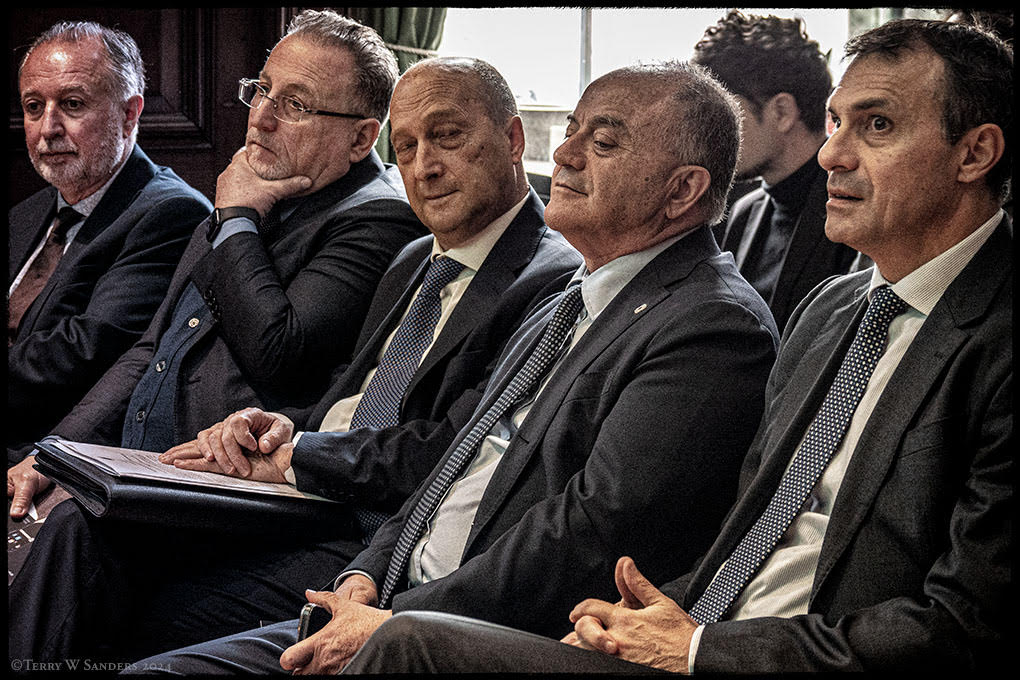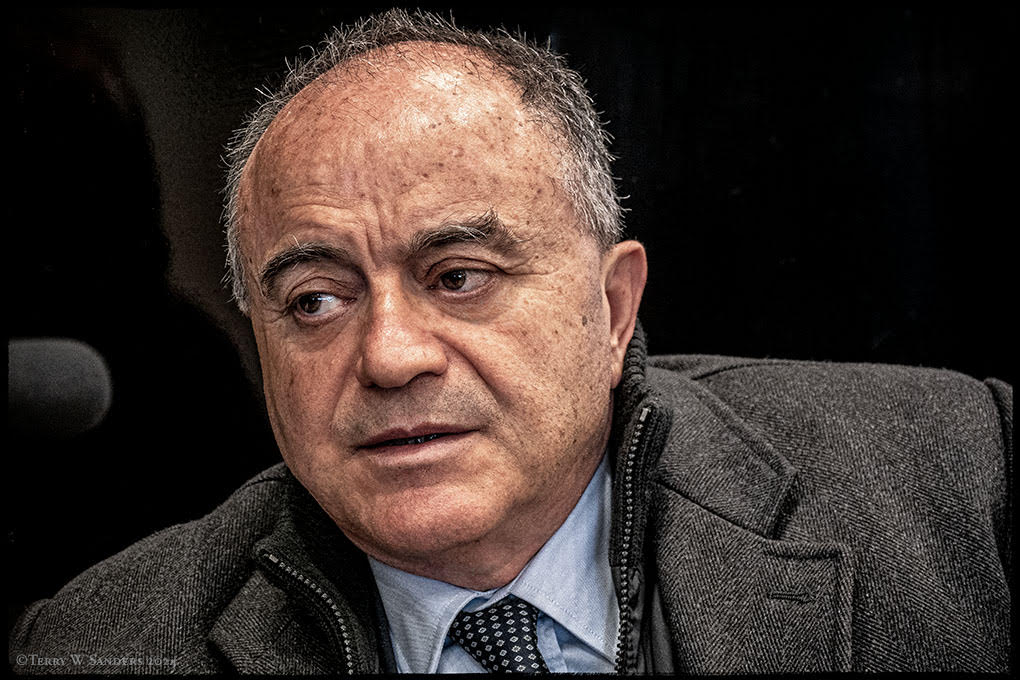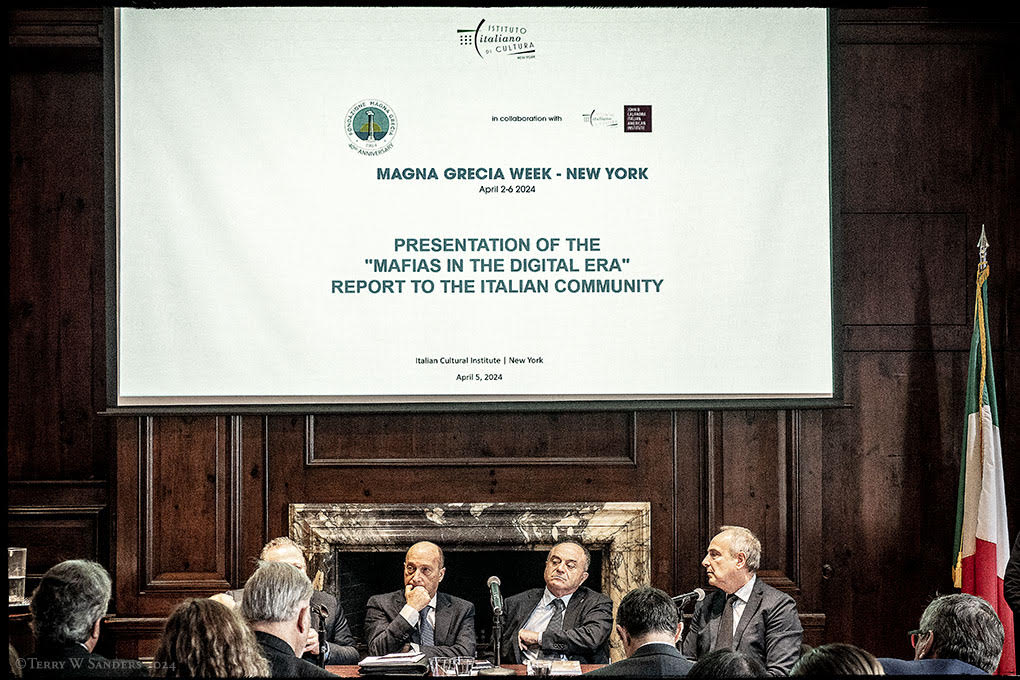The Italian Cultural Institute convened the conference to discuss the profound impact of the digital revolution on organized crime, particularly the mafia. Hosted by Fabio Finotti, Director of the Italian Cultural Institute, and Fabrizio Di Michele, Consul General of Italy in New York, the conference delved into how technology reshapes criminal operations beyond the traditional underworld.
Moderated by Fabrizio Frullani, Deputy Director of TG2-RAI, the panel comprised Nino Foti, President of the Magna Grecia Foundation; Antonio Nicaso, a renowned mafia expert from Queen’s University; Nicola Gratteri, Chief Prosecutor of the Court of Naples; Arthur Gajarsa, a former judge of the US Court of Appeals for the Federal Circuit; and Anthony Tamburri, Dean of the John D. Calandra Italian American Institute. Together, they explored the intersection of the digital realm and organized crime.

The digital age has revolutionized communication, a change that has not spared the mafia. social network sites like Facebook, YouTube, Twitter, Instagram, and TikTok have become the main platforms for interaction and content dissemination, creating a digital ecosystem where the mafia narrates itself and is countered by social antimafia movements.

The speakers referenced a comprehensive study that employed a blend of humanities and computer science to analyze the quality and quantity of mafia presence on social networks.. Through data analyses researchers examined an extensive array of digital content, revealing the intricate network of interactions occurring invisibly across the web.
This analysis uncovered a “digital imagination” of the mafia, constantly refreshed through social media. These platforms not only mirror, but also fuel, the evolution of mafia criminal culture. The mafia redefines old narratives to build consensus and promote their criminal brand, exploiting the digital space to maintain relevance and recognition in a society driven by information and consumption.
The speakers emphasized that Generation Z members of criminal families are adept at navigating the digital landscape, using the redundancy of luxury to advertise their criminal endeavors. This shift demonstrates the necessity for criminal organizations to master digital management to gain consensus and maintain their status. The speakers also used examples of other organized crime entities that do a far better job of navigating and exploiting digital platforms; they point out that if the mafia was approaching their operations more intelligently things could become far worse.
Gajarsa, a former US Court Judge, tied the conversation back to the predicaments that currently plague the States. Faced with the specter of societal disruption inherent in social media, he believes we need to develop significant new legislation to fight back; failing to do so, in his eyes, would surrender our institutions and our self-governance to anarchy.
The conference went a long way in shedding light on the sophisticated strategies employed by the mafia, even for those who might know little about the context of the situation in Italy. It also highlighted the inherent dangers of empowering organized crime through digital platforms and made one thing ultimately clear: as the mafia evolves, so too must the strategies to counteract their influence.












